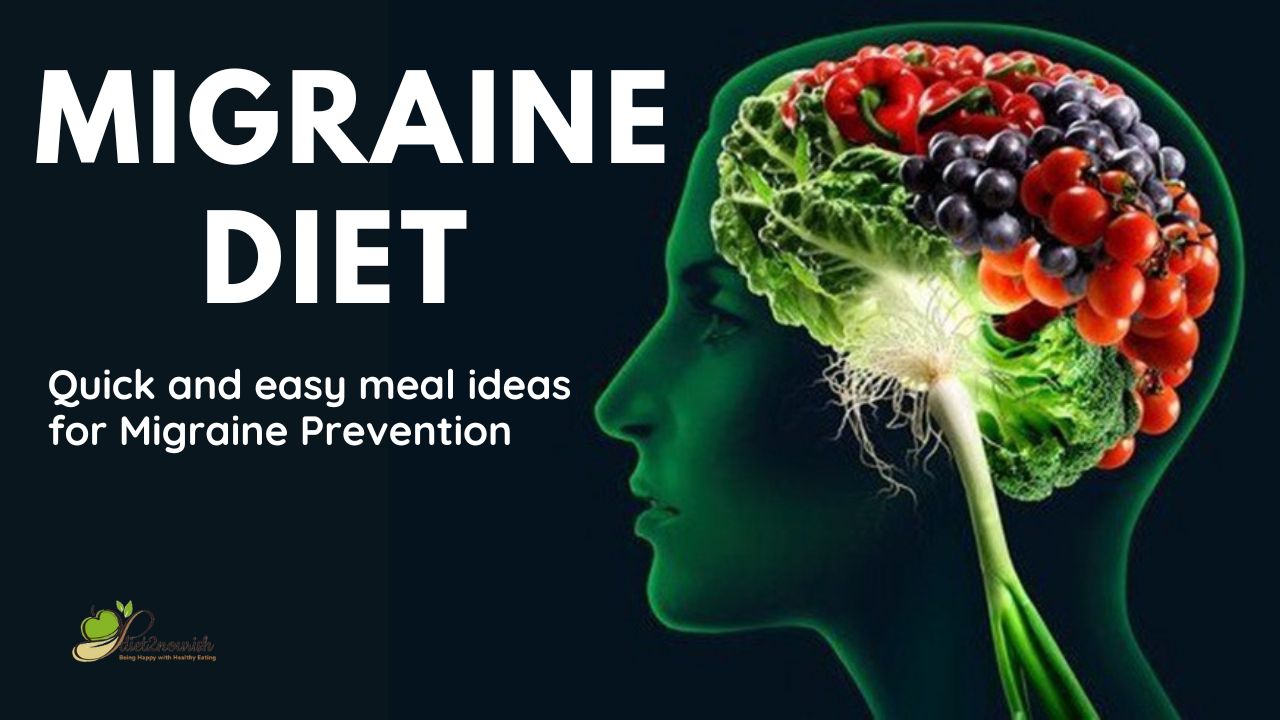Migraine is a neurological disorder characterized by recurrent headaches that can range from moderate to severe. People with migraines often experience other symptoms such as nausea, vomiting, and sensitivity to light and sound. While the exact cause of migraines is not yet fully understood, research has shown that diet can play a significant role in triggering or exacerbating migraine attacks. Therefore, modifying your diet can help reduce the frequency and severity of your migraines. Here are some Migraine Diet Modification that may help alleviate migraines:
Avoiding Trigger Foods: Certain foods are known to trigger migraines in some people. These include caffeine, alcohol, chocolate, aged cheese, processed meats, and foods containing monosodium glutamate (MSG). By identifying and avoiding these trigger foods, you can significantly reduce your risk of getting a migraine attack.
Staying Hydrated: Dehydration is a common trigger for migraines. Therefore, it is essential to stay hydrated by drinking plenty of water throughout the day. You can also incorporate hydrating foods into your diet, such as fruits and vegetables, soups, and broths.
Incorporating Magnesium-Rich Foods: Magnesium deficiency has been linked to migraines. Therefore, it is recommended to include magnesium-rich foods in your diet, such as whole grains, nuts and seeds, leafy green vegetables, and legumes.
Eating Regularly: Skipping meals or fasting can trigger migraines in some people. Therefore, it is essential to eat regular meals throughout the day, with a focus on foods that are low in sugar and fat and high in fiber and protein.
Incorporating Anti-Inflammatory Foods: Inflammation has been linked to migraines, and incorporating anti-inflammatory foods into your diet can help reduce the risk of getting migraines. Some examples of anti-inflammatory foods include fatty fish, nuts and seeds, berries, and leafy green vegetables.
Limiting Histamine-Rich Foods: Histamine is a chemical produced by the body that is involved in the immune response. Some people are sensitive to histamine-rich foods, and consuming them can trigger migraines. Examples of histamine-rich foods include fermented foods, aged cheeses, smoked meats, and canned fish.
Avoiding Artificial Sweeteners: Artificial sweeteners, such as aspartame and sucralose, have been linked to migraines in some people. Therefore, it is recommended to avoid consuming products containing these sweeteners.
Limiting Caffeine: While caffeine can provide some relief for migraines, consuming too much caffeine can trigger migraines in some people. Therefore, it is recommended to limit caffeine intake to no more than 400mg per day, which is equivalent to about 4 cups of coffee.
Avoiding Food Additives: Food additives such as nitrates and nitrites, used to preserve and flavor food, have been linked to migraines. Therefore, it is recommended to avoid processed and packaged foods containing these additives.
Keeping a Food Diary: Keeping a food diary can help identify trigger foods that may be causing your migraines. By keeping track of what you eat and when you get migraines, you can identify patterns and make dietary modifications accordingly.
In conclusion, modifying your diet can help reduce the frequency and severity of your migraines. By avoiding trigger foods, staying hydrated, incorporating magnesium-rich and anti-inflammatory foods, eating regularly, limiting histamine-rich foods, avoiding artificial sweeteners and food additives, limiting caffeine, and keeping a food diary, you can significantly reduce your risk of getting migraine attacks. However, it is important to note that dietary modifications alone may not be enough to alleviate migraines, and you may need to consult a healthcare professional for further evaluation and treatment.
